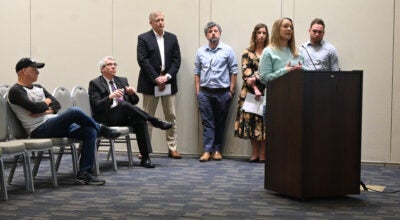Top IRS official didn’t reveal tea party targeting
Published 12:00 am Tuesday, May 14, 2013
WASHINGTON (AP) — The IRS acting chief acknowledged Tuesday that the agency demonstrated “a lack of sensitivity” in its screenings of political groups seeking tax-exempt status, but he said those mistakes won’t be repeated.
In his first public comment on the case, Steven Miller said there was “a shortcut taken in our processes” for determining which groups needed special screening.
Miller has emerged as a key figure in the controversy over the IRS’ singling out of conservative groups for extra scrutiny. President Barack Obama said Monday that if the agency intentionally targeted such groups, “that’s outrageous and there’s no place for it.”
In an opinion piece in Tuesday’s editions of USA Today, Miller said conceded that the agency demonstrated “a lack of sensitivity to the implications of some of the decisions that were made.” He said screening of advocacy groups is “factually complex, and it’s challenging to separate out political issues from those involving education or social welfare.”
“The mistakes we made were due to the absence of a sufficient process for working the increase in cases and a lack of sensitivity to the implications of some of the decisions that were made,” Miller wrote.
Miller said the agency has implemented new procedures that will “ensure the mistakes won’t be repeated.”
On Monday, the IRS said Miller was first informed on May, 3, 2012, that applications for tax-exempt status by tea party groups were inappropriately singled out for extra scrutiny. Congress, though, was not told tea party groups were being inappropriately targeted, even after Miller had been briefed on the matter.
At least twice after the briefing, Miller wrote letters to members of Congress to explain the process of reviewing applications for tax-exempt status without disclosing that tea party groups had been targeted. On July 25, 2012, Miller testified before the House Ways and Means oversight subcommittee, but again did not mention the additional scrutiny — despite being asked about it.
At the hearing, Rep. Kenny Marchant, R-Texas, told Miller that some politically active tax-exempt groups in his district had complained about being harassed. Marchant did not explicitly ask if tea party groups were being targeted. But he did ask how applications were handled.
Miller responded, “We did group those organizations together to ensure consistency, to ensure quality. We continue to work those cases,” according to a transcript on the committee’s website.





